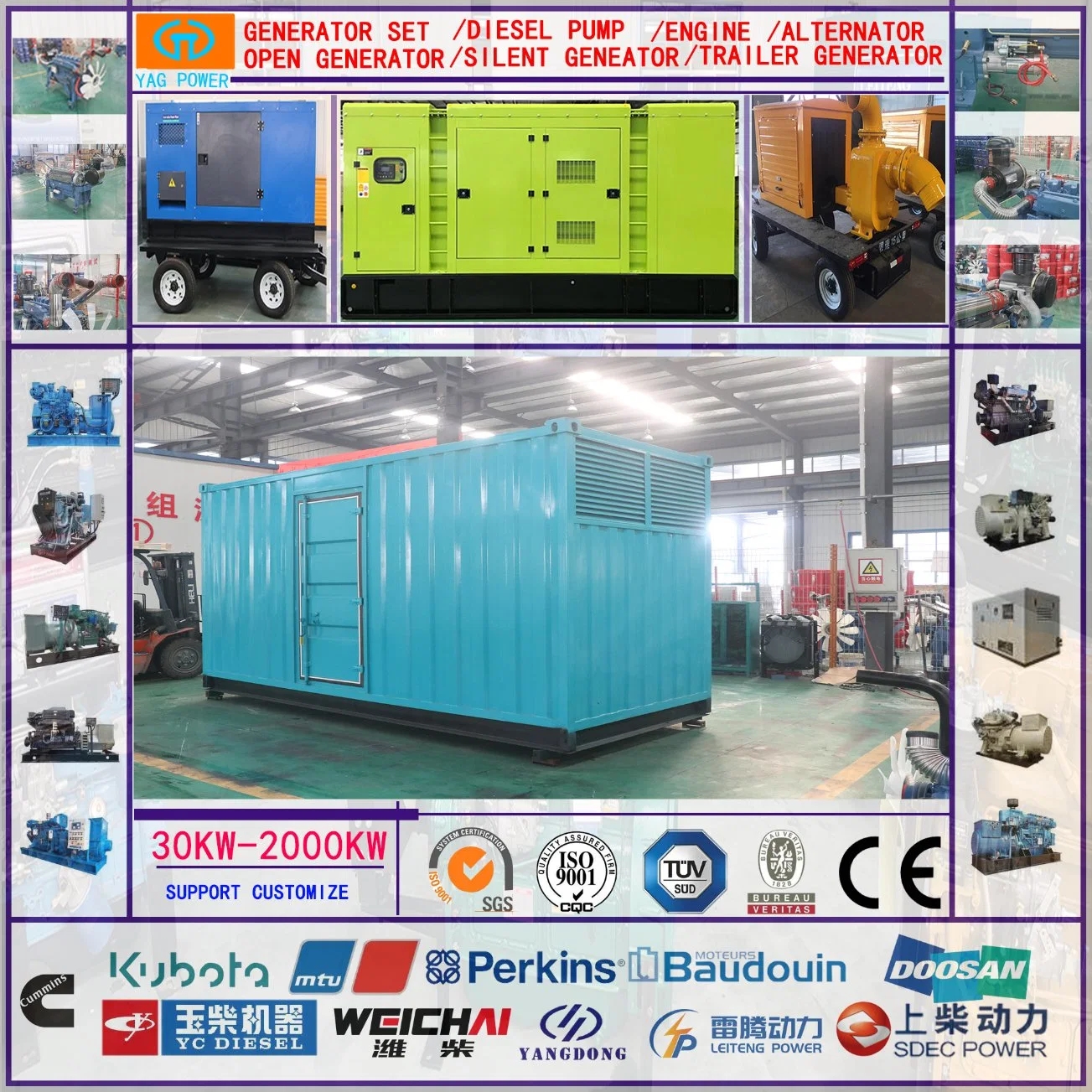Diesel Generators for Fuel Management A Comprehensive Guide
Introduction In today's world, reliable power supply is essential for businesses, industries, and residential areas. Diesel generators play a crucial role in ensuring uninterrupted power supply during grid failures or in remote locations where grid connectivity is not feasible. These generators are known for their robustness, reliability, and efficiency in providing backup power. However, one of the key aspects of operating a diesel generator effectively is managing the fuel supply efficiently. In this article, we will delve into the importance of fuel management for diesel generators and explore various strategies to optimize fuel usage. Importance of Fuel Management for Diesel Generators Fuel is the lifeblood of diesel generators, as these machines rely on diesel fuel to produce electricity. Efficient fuel management is crucial for ensuring the reliable operation of diesel generators and maximizing their performance. Proper fuel management practices not only help in reducing operational costs but also contribute to environmental sustainability by minimizing fuel wastage and emissions. 1. Fuel Quality The quality of fuel used in diesel generators has a direct impact on their performance and longevity. Poor-quality fuel can lead to engine problems, reduced efficiency, and increased maintenance costs. It is essential to use high-quality diesel fuel that meets the required specifications and standards set by regulatory authorities. Regular testing and monitoring of fuel quality are essential to ensure that the diesel generator operates smoothly without any issues. 2. Fuel Storage Proper storage of fuel is critical for maintaining its quality and preventing contamination. Diesel fuel should be stored in clean, dry, and well-ventilated storage tanks that are designed specifically for fuel storage. It is important to ensure that the storage tanks are kept secure and protected from environmental factors that can degrade the fuel quality. Regular inspection and maintenance of fuel storage tanks are essential to prevent leaks, corrosion, and other issues that can affect the fuel supply. 3. Fuel Consumption Monitoring Monitoring fuel consumption is essential for tracking the performance of a diesel generator and optimizing its fuel usage. By keeping track of fuel consumption patterns, operators can identify any inefficiencies or anomalies in fuel usage and take corrective actions accordingly. Fuel consumption data can also help in predicting maintenance requirements, scheduling refueling operations, and optimizing the overall operation of the diesel generator. 4. Fuel Filtration Proper filtration of fuel is essential for removing impurities, water, and contaminants that can damage the engine and fuel system of a diesel generator. Fuel filters should be regularly inspected and replaced as per the manufacturer's recommendations to ensure optimal performance and longevity of the generator. Regular maintenance of fuel filtration systems is crucial for preventing fuel-related issues and ensuring the smooth operation of the diesel generator. 5. Fuel Additives Using fuel additives can help in improving the performance and efficiency of diesel generators by enhancing fuel combustion, reducing emissions, and preventing fuel degradation. Additives such as stabilizers, lubricity improvers, and anti-icing agents can be used to enhance the quality of diesel fuel and protect the engine from wear and tear. However, it is important to use only approved additives and follow the manufacturer's guidelines for their proper use and dosage. 6. Fuel Management Systems Fuel management systems provide a comprehensive solution for monitoring, controlling, and optimizing fuel usage in diesel generators. These systems use advanced technology such as sensors, monitoring devices, and software to track fuel levels, consumption rates, and other important parameters in real-time. Fuel management systems help operators in managing fuel inventory, scheduling refueling operations, and detecting any anomalies or inefficiencies in fuel usage. https://www.lkpowerplant.com/400kw/ provide data analytics and reporting tools for analyzing fuel consumption patterns and optimizing fuel management strategies. 7. Fuel Efficiency Measures Implementing fuel efficiency measures can help in reducing fuel consumption, operational costs, and environmental impact of diesel generators. Simple measures such as regular maintenance, proper load management, and optimal operating conditions can significantly improve the fuel efficiency of a generator. Additionally, technologies such as variable speed drives, energy storage systems, and hybrid power solutions can further enhance the fuel efficiency of diesel generators and reduce their carbon footprint. 8. Fuel Safety and Compliance Ensuring fuel safety and compliance with regulatory requirements is essential for operating diesel generators safely and responsibly. Operators should follow all safety guidelines and regulations related to fuel storage, handling, and disposal to prevent any accidents or environmental hazards. Regular inspections, training programs, and emergency response plans should be in place to mitigate any risks associated with fuel usage and storage. Compliance with emission standards and pollution control measures is also necessary to minimize the environmental impact of diesel generators. Conclusion  Fuel management is a critical aspect of operating diesel generators efficiently and effectively. By implementing proper fuel management practices, operators can ensure the reliable performance of generators, reduce operational costs, and contribute to environmental sustainability. From fuel quality and storage to consumption monitoring and efficiency measures, there are various strategies that can be adopted to optimize fuel usage in diesel generators. Investing in advanced fuel management systems, utilizing fuel additives, and following safety and compliance guidelines are essential steps in achieving optimal fuel management for diesel generators. By prioritizing fuel management, operators can maximize the benefits of diesel generators and ensure uninterrupted power supply in various applications and industries.
Fuel management is a critical aspect of operating diesel generators efficiently and effectively. By implementing proper fuel management practices, operators can ensure the reliable performance of generators, reduce operational costs, and contribute to environmental sustainability. From fuel quality and storage to consumption monitoring and efficiency measures, there are various strategies that can be adopted to optimize fuel usage in diesel generators. Investing in advanced fuel management systems, utilizing fuel additives, and following safety and compliance guidelines are essential steps in achieving optimal fuel management for diesel generators. By prioritizing fuel management, operators can maximize the benefits of diesel generators and ensure uninterrupted power supply in various applications and industries.